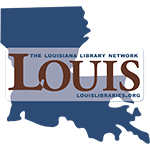Module 2 Assignment
Instructions
This assignment addresses course outcome situating your thinking-and the thinking of others-in a philosophically informed context and module learning objective effectively communicating your analysis.
Instructions:
Choose one of the following prompts to address in your assignment. Your response should be well-structured, coherent, and supported by relevant examples and references to philosophical texts or theories.
Prompt 1: The Problem of Knowledge Epistemology often grapples with questions related to the nature of knowledge and how we can be justified in claiming to know something. Discuss the distinction between belief and knowledge, addressing concepts such as truth, justification, and belief. Explore the classical "Gettier problem" and present your understanding of how justified true belief might not necessarily constitute knowledge. Provide an original example to illustrate this problem and propose a potential solution.
Prompt 2: The Role of Perception in Knowledge Examine the role of perception in our acquisition of knowledge. Discuss the challenges and limitations of relying on our senses to understand the world. How do philosophers like Descartes and empiricists like John Locke approach the question of whether our senses can provide us with reliable knowledge? Present arguments for and against the reliability of perception as a source of knowledge, and offer your perspective on the matter.
Prompt 3: Skepticism and Certainty Skepticism is a recurring theme in epistemology, challenging the extent to which we can have true knowledge about the external world or even about our own thoughts and experiences. Discuss the various forms of skepticism, including global skepticism and local skepticism, and how they call into question our ability to have justified beliefs. Explore how philosophers like Rene Descartes and David Hume responded to skeptical challenges. Conclude by reflecting on whether there are any limits to skepticism and if we can ever achieve certainty in our beliefs.
Prompt 4: Epistemology in Modern Science Consider the relationship between epistemology and the scientific method. How does the scientific method align with or challenge traditional epistemological theories? Discuss the role of empirical evidence, observation, and experimentation in the acquisition of scientific knowledge. Address the concept of "scientific realism" and its implications for our understanding of reality. Can scientific knowledge be considered a form of certain knowledge, and how does it differ from other types of knowledge?
Formatting and Submission:
- Your assignment should be typed, double-spaced, and between 800 to 1000 words in length.
- Use proper citations and references for any philosophical texts or sources you use.
- You may include diagrams, charts, or examples to support your arguments.
- Submit your assignment through the designated platform by the specified deadline.
